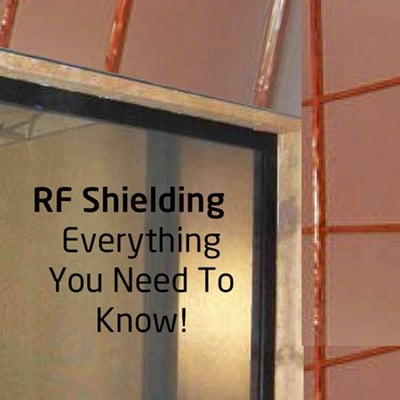Maybe you’re looking for the perfect Magnetic Resonance Imaging (MRI) for your facility, hospital, practice or clinic. Or maybe you’ve already selected it. If so, good for you! Now there’s one more critical decision to make before your project even begins:  selecting and installing RF Shielding.
selecting and installing RF Shielding.
RF Shielding prevents radio frequency waves, vibration issues or “noise” from entering your MRI
Suite. These waves can interfere with the operation of your MRI and result in image artifacts and distorted images, whether you’re using a Siemens, Phillips, GE, Toshiba or any other brand of MRI. Signal clutter can be caused by things like steel elevators, televisions stations, two-way radios, cells phones, traffic, subways and more.
First, it’s important to hire an expert to perform an inspection and professional evaluation of your equipment room well before installation. They will be able to identify any vibration or RF issues and provide a plan to “shield” the room, including walls, floors ceilings and even electrical circuits. Even one small puncture or open seam can result in image damage!
The shield is essentially a leak-proof box that encloses the signals created. RF Shielding is usually made out of soldered copper, non-oxidizing aluminum or galvanized steel. The best and most cost effective materials are galvanized steel and copper, and since copper can sometimes double the cost, those who are on a smaller budget choose galvanized steel. It’s good to note that copper RF Shields do not cost as much to maintain over time and repairs are minimal.
Sealing Your RF Shielding
With galvanized steel, the seams are usually screwed together. However, sometimes this method can be prone to leakage. That’s why it’s important to routinely have the shielding checked. It’s also important that the steel isn’t exposed to excess moisture or it will corrode over time.
When using copper, the panel seams are usually soldered. As a rule, most copper enclosures carry a warranty that lasts five years or even as long as the lifetime of the shielding.
Installation
Depending on the contractor, it can take anywhere from 6-10 days for copper installation and 4- 5 days for installation with Galvanized Steel.
Recycling
Sheets of Galvanized Steel that have been screwed together can be used again at another location. However, it will need to fit exact specifications in order to deliver a perfect fit.
RF Shields made of copper can’t be moved since the seams are soldered together. However, the copper can be recycled to cover some of the costs.
The Bottom Line
Both copper and galvanized steel are good options for use in RF Shielding. Regardless of what you choose, make sure they are tested and are performing perfectly, without leakage. With the proper maintenance, both can protect your MRI and work well.
If you have any other questions about MRI Shielding or installation, give the experts at Atlantis Worldwide a call at 212-366-9100 or Contact Us Today!
Some blogs you may have missed:
- MRI's - Top 5 Things to Consider Before Buying a MRI
- Top 4 Considerations Before Installing an MRI
- 8 Channel MRI vs. 4 Channel MRI—What is the Difference?
- Your MRI and Cryogen Venting
- Before You Order That MRI: A Checklist
- Free MRI Resources
Meet the author: Vikki Harmonay




